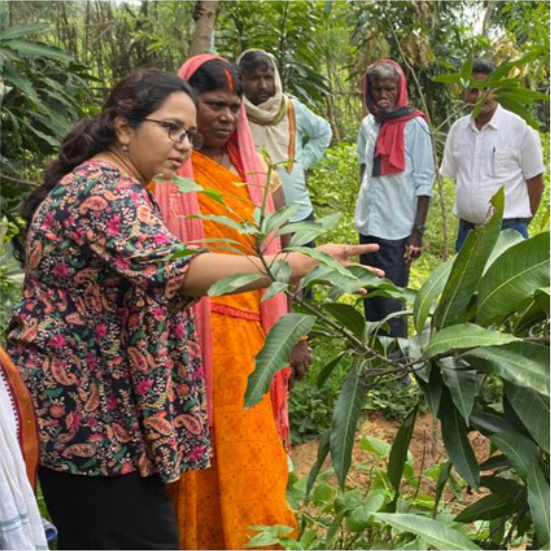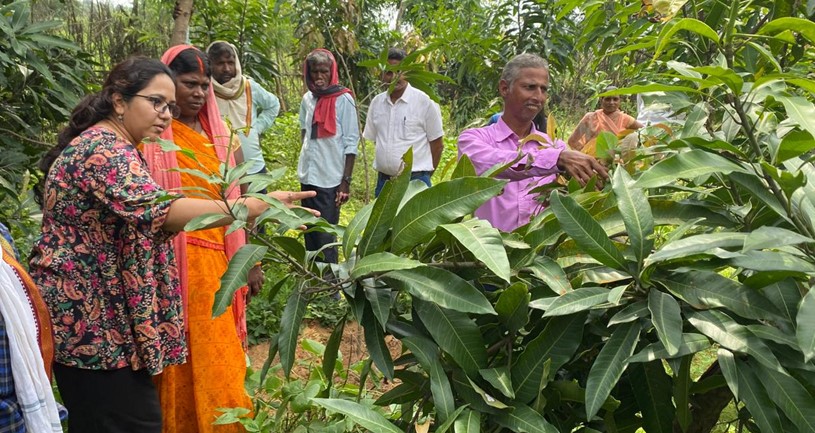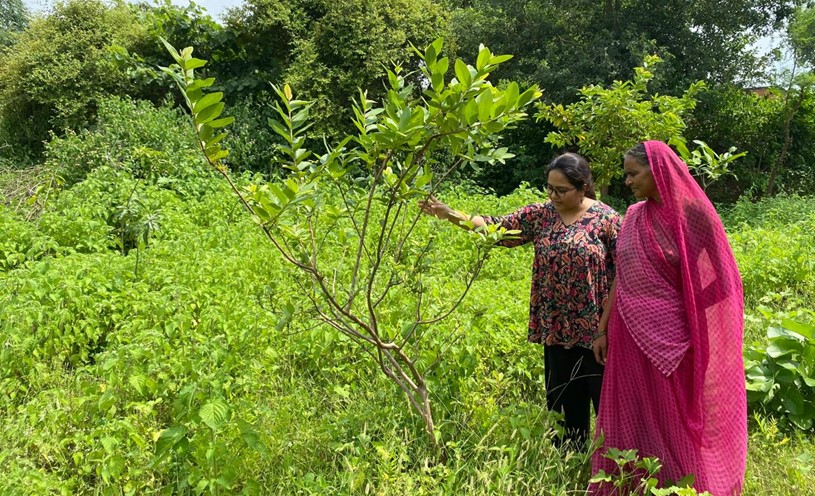
Farmers learn maintenance practices for greener environment and secure income.
#WADIFarming

On site training of WADI Farmers
A one-day training programme on WADI maintenance was organised on 11 September 2025 in two villages, Chanchi Khurd and Gidhiya, in Sonbhadra, Uttar Pradesh. Here, farmers are nurturing more than saplings – they are planting the roots for a sustainable future. These farmers are part of a growing movement to transform their land and livelihoods through the WADI model.
As part of Integrated Village Development, under our Local Institution and SDG Action Programme, the initiative aims to strengthen institutions for resilient communities. With support from LIC Housing Finance Limited, DA has developed over 130 WADIs across five villages in Sonbhadra.
WADI (Wasteland Development through Agriculture-based Interventions) is a holistic model of land development designed primarily for small and marginal farmers. It integrates horticulture, forestry, and agriculture on small plots of land (usually 0.5–1 acre). Fruit trees are planted alongside boundary plantations of forest species, while intercrops are cultivated in between until the trees mature.
Beyond plantation, the project also supports WADI farmers through capacity-building and training sessions. On 11 September 2025, 25 farmers gathered for a one-day session to learn the art of caring for their plantations. The training began with a group discussion, followed by sessions on weed cleaning, pruning, training of plants, and irrigation methods such as basin irrigation and the application of organic manure. Participants then visited demonstration fields, where they practised these skills firsthand and received basic inputs to help understand how to care for their plants.
The training aimed to build farmers’ technical capacities in plantation management under the WADI model, while also strengthening their understanding of the long-term environmental, economic, and social benefits of sustainable farming practices.
To ensure sustainability, five Community Resource Persons (CRPs) were trained as master trainers. They will carry the learnings forward, training more farmers in their respective villages and monitoring the adoption of best practices. This cascading approach ensures that knowledge spreads organically across communities, creating a multiplier effect for sustainable farming practices.
Though modest in scale, this one-day training has laid the foundation for larger transformation. By integrating environmental stewardship, economic opportunity, and social empowerment, the WADI model in Sonbhadra stands as a promising pathway towards building resilient communities.

Women farmer being trained on maintenance of WADI plants